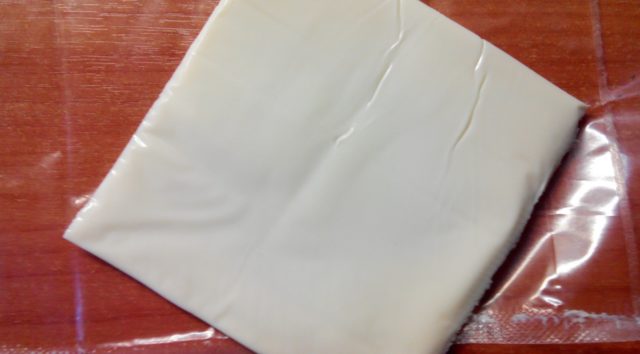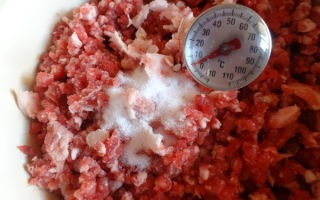Content
Food supplement E340 is an antioxidant, it belongs to the phosphate subgroup. This preservative is obtained artificially. It has been assigned a very low hazard class, so it is considered harmless. Е340 is allowed not only in Russia, but also in Canada, USA, EU countries, Australia, Great Britain.
What is the additive E340
According to the accepted international classification, the E340 code is assigned to potassium phosphate. In the food industry, potassium orthophosphate 1, 2 or 3-substituted is used. They are designated respectively as E340 (i), E340 (ii) or E340 (iii).
Use a preservative as:
- stabilizer;
- acidity regulator;
- baking powder;
- emulsifier;
- color fixer;
- humectant agent.
When added, the effect of antioxidant substances is enhanced.
The food additive looks like a granular or crystalline powder. It can be either colorless or white. E340 dissolves well in water, but remains practically unchanged when combined with ethanol. From a chemical point of view, the additive is a potassium salt or orthophosphate ester.
The preservative has no smell, it tastes sour. When using it, it is important to comply with the recommended norms. According to world standards, foodstuffs should contain the stabilizer in an amount of no more than 70 mg per 1 kg. But in Russia you can find products in which its content reaches 5 g per 1 kg.
What is the stabilizer E340 made of?
The food additive is produced on an industrial scale. To obtain it, phosphoric acid is neutralized with potassium carbonate or hydroxide.
After the completion of the chemical reaction, the final purification and crystallization of the substance is carried out. For this purpose, the water formed in the process of neutralization of orthophosphoric acid is evaporated.
The benefits and harms of food additives E340
It is difficult to say unequivocally whether a stabilizer is dangerous or useful. When consumed in small quantities, E340 additives do not have a negative effect on the body.
This substance is not as harmful to the gastric mucosa as other antioxidants from the phosphate subgroup. Its use in small doses allows you to regulate the acid-base balance.

Phosphates are even useful: they participate in the process of providing energy to tissues and organs, metabolism. These additives facilitate the passage of the necessary enzymatic and metabolic reactions.
The preservative has a mild diuretic effect on the body. Thanks to the regulation of the fluid level, it is possible to stabilize blood pressure, normalize the functioning of blood vessels and the heart. The specified substance is involved in the excretion of hydrogen ions by the kidneys.
Unlike phosphoric acid, which destroys tooth enamel, potassium phosphate prevents tooth decay. This property is actively used by manufacturers of toothpastes.
Despite the potential safety, it is important to keep track of how much of a dietary supplement is being ingested. E340 preservative can provoke:
- diarrhea;
- deterioration of intestinal microflora;
- the development of osteoporosis;
- the formation of calcium plaques inside the vessels.
E340 food additive is dangerous or not
When using potassium phosphate in the permitted amounts, the likelihood of a negative effect on the body is minimal. The food supplement is harmless. It is even used in the pharmaceutical industry for the production of medicines.
The stabilizer will be dangerous if consumed in excessive quantities. Researchers of the Kedr group, engaged in independent environmental expertise, note the carcinogenic effect of E340. This means that it can promote the development of malignant neoplasms in the body. But, according to the national ministry of health, the food supplement is completely safe.
Potassium phosphate will be harmful if it is ingested in excessive amounts. With the abuse of products with E340, the process of calcium absorption is disrupted. This leads to the development of osteoporosis - an increase in bone fragility. The formation of calcium plaques in the vessels is one of the causes of heart attacks and the occurrence of renal failure.
Where and why is the E340 food additive added?
E340 preservative is actively used in the food industry. It is used as a flavor enhancer and acidity regulator in such products:
- carbonated drinks (Sprite, Pepsi and the like);
- liqueurs;
- confectionery.
In sterilized and pasteurized milk, a food additive is needed as a substance that increases the resistance of dairy products to heat.

In green vegetables, E340 acts as a color stabilizer. They do not change color during heat treatment. This is due to the fact that potassium monophosphate is able to maintain a neutral acidity of the medium, the pH remains at about 7. This helps to preserve the green color.
E340 is added to canned vegetables and fruits as a hardener. And in the production of sugar, the substance is used as a bleach.
Phosphate performs the function of a baking powder potassium when added to such products:
- egg powder;
- dry cream;
- icing sugar;
- other free-flowing mixtures.
In the production of finished meat, minced fish, sausages, a food preservative is used as a binder and moisture-retaining component. They do not do without it in the manufacture of rye bakery products, sports nutrition drinks. It is the source of potassium for these foods.
The preservative is part of instant coffee and coffee drinks.
Conclusion
Food additive E340 is harmless when consumed in recommended doses. An overabundance of this substance can be encountered by people who daily drink large quantities of instant coffee and carbonated drinks. Abuse of the preservative leads to the appearance of eating disorders, its regular intake can lead to a deterioration in the absorption of calcium.

